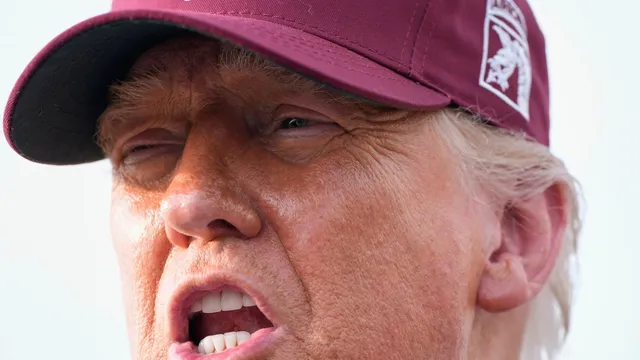
Trump contests felony conviction in federal court appeal
2025-06-11 21:35- Donald Trump's legal team argues for his felony conviction to be moved from state court to federal court, citing presidential immunity.
- The Manhattan District Attorney's office maintains that the case is tied to Trump's unofficial conduct and should remain in state jurisdiction.
- The court has taken the arguments under advisement, which reflects the complexity and unprecedented nature of the case against a former president.
Express your sentiment!
Insights
In the United States, Donald Trump's legal team is advocating for his felony conviction to be reconsidered in a federal court rather than in a state appellate court. This development follows Trump's sentencing after being found guilty of 34 felony counts related to hush money payments made to adult film actress Stormy Daniels during the 2016 presidential campaign. The U.S. Court of Appeals for the Second Circuit has begun to review arguments regarding the removal of the case to federal jurisdiction, with Trump's attorneys asserting that the case has significant implications concerning presidential immunity established by a recent Supreme Court ruling. They contend that actions taken by Trump while in office should warrant discussion in a federal court setting, given the unprecedented nature of the prosecution. However, representatives from the Manhattan District Attorney's office counter that Trump’s actions were not related to his official duties and, thus, do not qualify for federal court review. These discussions are occurring months following Trump's conviction, with his legal team stressing that the circumstances call for consideration of the broader constitutional implications involved in prosecuting a former president. With the appeal process underway, the judges have not made an immediate ruling, leaving Trump's legal future uncertain and highlighting the tension between state law enforcement authority and federal judicial proceedings regarding presidential conduct.
Contexts
The recent Supreme Court ruling on presidential immunity marks a significant moment in the intersection of law and politics in the United States. This decision addresses the extent to which a sitting president can be shielded from legal inquiries and civil lawsuits while in office. The ruling, prompted by several high-profile cases involving former President Donald Trump, has clarified the boundaries of presidential immunity established in earlier cases. Historically, the principle of presidential immunity shields a sitting president from lawsuits related to their official duties, allowing them to perform their functions without the disruption of legal proceedings. However, this ruling asserts that such immunity is not absolute and does not extend to actions conducted outside the parameters of official responsibilities. As the court deliberated, the justices considered the implications of allowing a president to operate without accountability. Critics argued that unqualified immunity could lead to abuses of power while proponents maintained that the presidency requires a level of protection to ensure effective governance. The Court ultimately held that while presidents possess inherent immunity for actions taken while in office, they must still answer to certain civil actions that occur as a result of personal misconduct or actions unrelated to their official duties. This ruling is significant as it seeks to balance the need for presidential accountability with the necessary protections required for effective governance. This ruling also raises questions about its impact on future presidencies and ongoing legal battles. Legal experts anticipate increased litigation surrounding matters involving presidents, as individuals may feel empowered to challenge actions taken by sitting presidents. The ruling may not only affect current legal cases but also set a precedent for how future courts might interpret the limits of presidential immunity. As citizens and lawmakers grapple with the ramifications of this decision, discussions about presidential accountability in context to legal limits are likely to intensify, particularly as the nation approaches the next presidential election cycle. In summary, the Supreme Court's ruling on presidential immunity represents a nuanced approach to a fundamental question of law and governance. The decision underscores the principle that while presidents need a degree of immunity to fulfill their roles, this protection does not grant them carte blanche to evade legal scrutiny for personal misconduct. The balance struck by the court may usher in a new era of accountability for presidents, ensuring that while they are granted the ability to execute their duties unfettered by nuisance litigation, they remain responsible for their actions beyond the scope of their presidential responsibilities.